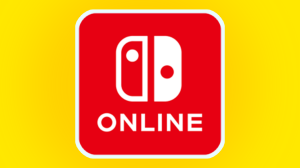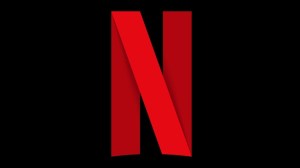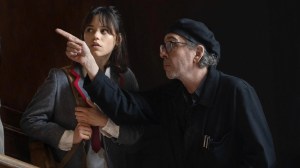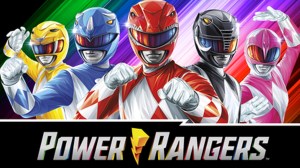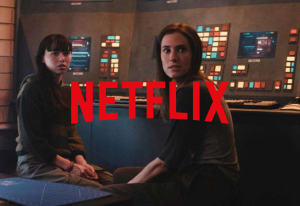There’s a brand new game heading to Kickstarter called Half Truth, and it’s the product of a team-up between Magic: The Gathering creator Richard Garfield, Jeopardy world record winner Ken Jennings, and Studio71 as well as Red Arrow Studios and Nighthawk Games. In addition to Magic The Gathering (which is still one of the most popular games around), Garfield has had a hand in a plethora of other hit titles, and as for Jennings, he took his record-setting win and became an author, releasing several hit books centered around Trivia. Now they’ve combined to make a trivia game that aims to make the player feel like the smartest player in the room, and we had a chance to them all about it.
Videos by ComicBook.com
The game, which is on Kickstarter now, has players answering trivia questions about all sorts of topics and genres, but it also makes sure to include everyone in that process to avoid having a question you know the answer to asked to someone else and make you feel as if the opportunity passed you by, something they wanted to avoid.
“Well, there were definitely some things I wanted to do avoid,” Garfield said. “I wanted to make the game as broad as possible. I wanted to make it inviting so that people who didn’t normally feel like they could compete in trivia could go into the game and either have a chance at winning or at least a chance at shining for some moments. So I wanted to make sure that all the questions were answered by all the players. There’s nothing more frustrating in an evening of trivia than to have the only question which you know, asked to somebody else.”

“The other thing I wanted to make sure happened was that you had hooks into as many questions as possible,” Garfield said. “That is, it was not often about black and white. Do you know this or do you not know this, but whether you can use your intuition, metagaming as Ken said, getting into the head of the question writer. Deduction because all the questions are multiple-choice. Sometimes you can eliminate some of the answers which will improve your chances of guessing if that’s what it comes to.”
So here’s how a turn breaks down. On a turn, you reveal a question and roll stakes for it, which will dictate how many spaces you move forward on the race track (as you can see in the photo of the board) if you get the answer right.

“As a sample, I like this one,” Garfield said. “This is a word contained in Lady Gaga’s Poker Face. So the answers are moolah, cash, muffin, Russian and spades. So now everybody simultaneously chooses one of those or they can choose two or three because every question has three correct answers and then the answers are revealed. And if you got any one of those questions wrong, you don’t move forward, whatever the stakes were. But if you got through all of them right … If you got one right, if you’ve got them all right, you’ll move toward those stakes and you’ll get a bonus point for every extra one you’ve got correct.”
As Jennings explains, that mechanic is what led to the name. “Every card has three true answers and three lies, hence the name,” Jennings said. “And you’re trying to figure out which are which.”
That is what makes this trivia game different from others, and also ties into the game’s tagline, which is “A Party Game That Makes You Feel Smart”.

“Yes. Because all the answers are right in front of you on the card,” Jennings said. “There’s never some agonizing 10 minutes where somebody bangs their head on the table trying to remember the name of the drunk on the Andy Griffith Show or the capital of Guatemala. That’s what I hate about trivia games. Here the answers are all right in front of you. Everybody’s playing all the time and you always have that feeling of just surprising yourself with what you know and not being disappointed by how much you’ve forgotten.”
“Yeah, and because of the structure at worst, if you have to guess, you’ve got a 50% chance of getting the lion’s share of the prize,” Garfield said. “But our goal in designing the questions was it’s a complete guess as little as possible, that you should be able to improve your chances because you will have some idea that some of the answers are more probable than others and some of the answers can be eliminated or probably eliminated, that sort of thing.”
“The first time I played the game with Richard during playtesting, I won and felt very smart indeed,” Jennings said. “And then the second time we played, I lost. So, anybody can be beaten in this game. Every game is different.”

“If you know a lot of trivia, you will have a better chance,” Garfield said. “That’s the nature of the beast. But again, you should have a chance to win even if you don’t know the most and at least a chance to shine from time to time.”
Now it’s up to backers to see the game actually produced as it hits Kickstarter, and Jennings loves the sense of community that these types of campaigns can build, something he’s familiar with from his podcast.
“I do a podcast called Omnibus and we recently switched it over from being on our big corporate network to just starting out independently and taking donations on Patreon,” Jennings said. “And it’s only been a week or two, but it looks like this show is much more lucrative now. Just with people kicking in five dollars when they want, than it was trying to sell ad space on. I really liked that idea that like, the sense of community in fandom, might actually be smarter than or more successful than consumerism. Richard’s got tons of fans from the gaming world. Jeopardy people know me and I feel like people might like to kind of hop aboard the train wreck right as it leaves the station than just being on the ground floor.”
We imagine it will be anything but a train wreck, and we can’t wait to actually play the game with friends. You can throw your support behind the game by checking out the Kickstarter page right here!




